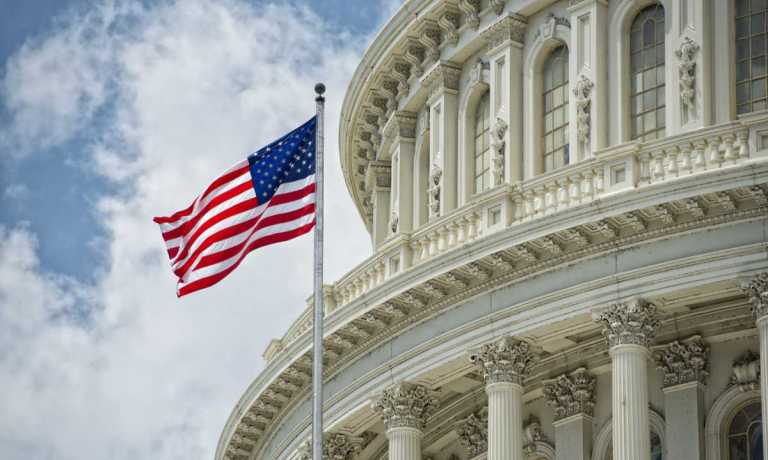Regulators Tell Senate Lawmakers SVB Bank Leaders Ignored Warnings

Lawmakers let their frustrations with regulators fly during Tuesday’s (March 28) Senate Banking Committee hearing.
The collapse of Silicon Valley Bank (SVB) and Signature Bank sent tremors throughout the U.S. banking system, and U.S. lawmakers took the opportunity presented by the morning hearing to grill the assembled federal officials about what went wrong.
“When do regulators drop the hammer?” asked Sen. Jon Tester (D-Mont.), adding that regulators should have made “these bankers damn miserable” once several red flags were initially raised as far back as November 2021.
“These collapses represent a massive failure in supervision over our nation’s banks,” Sen. Elizabeth Warren (D-Mass.) said.
In response, top federal banking regulators,, including U.S. Department of the Treasury Undersecretary for Domestic Finance Nellie Laing, Vice Chairman for Supervision of the Board of Governors of the Federal Reserve System Michael Barr, and Chairman of the Federal Deposit Insurance Corporation (FDIC) Martin Gruenberg, looked to emphasize bank executives’ own culpability in the SVB collapse, as well as the subsequent failure of Signature Bank.
“It’s ultimately, in the first instance, the bank management’s responsibility,” replied Federal Reserve Board Vice Chair for Supervision Michael Barr.
Read more: Regulators Seek ‘Unflinching’ Look at SVB and Bank Supervision at Capitol Hill Hearings
How Did the Problems With SVB Get so Bad and Go so Far?
Sen. Sherrod Brown (D-Ohio), chair of the Senate Banking Committee, also blamed the “hubris, entitlement, greed” of bank executives.
“The Fed knew SVB was poorly managed and had big risks and had a higher probability of failure if some shock occurred, yet nothing was done until the bank failed. How many other banks are in a similar situation?” Brown went on to say.
The role of bank examiners has become a central issue in the debate over why SVB collapsed, a fact which the hearing has only highlighted.
Barr revealed previously private information to lawmakers around SVB’s rating by the agency — disclosing that SVB was rated a dismal “3,” and that its holding company had been labeled as “deficient” with regard to management and internal controls prior to its collapse.
Regulators are generally wary of revealing to the public the ratings they give to banks, particularly poor ones. The Senate hearing also revealed that for more than two years the fed had been flagging to SVB management concerns around the institution’s interest rate and liquidity risk.
Sen. Steven Daines (R-Mont.) pushed for regulators to lose their jobs over the failure in oversight, calling it “ridiculous” that Barr was unwilling to say that if agency employees failed to perform their job he’d be willing to recommend they’d be fired.
Barr, for his part, blamed bank management teams for not complying with his agency’s warnings, not regulators for failing to raise them.
Still, avoiding tougher oversight will likely be more of a challenge for banks of all sizes going forward.
Under questioning from Warren, all three federal witnesses agreed that there existed a need for stronger regulations, particularly around capital standard and liquidity rules, following the two bank failures.
Paying the $20 Billion Cost of the Collapse
Per FDIC head Martin Gruenberg’s prepared testimony, the agency estimates the cost to the Deposit Insurance Fund to cover the collapse of Silicon Valley Bank to be $20 billion — including $18 billion to cover uninsured deposits.
The failure of Signature Bank is likely to require about $2.5 billion, including $1.6 billion to cover its uninsured deposits.
That money will come from fees levied on banks across the U.S.
“I would emphasize that these estimates are subject to significant uncertainty and are likely to change, depending on the ultimate value realized from each receivership,” said Gruenberg.
Several legislators, including Senate Banking Committee members Bill Hagerty (R-Tenn.) and Cynthia Lummis (R-Wyo.), argued that the Deposit Insurance Fund assessment will pass along the cost to the very same American taxpayers the FDIC is saying it won’t — consumers of small banks.
“Will you exempt community banks,” Lummis asked the FDIC chair directly, expressing concern that local banks in her state might end up having to pay for the bailout of uninsured depositors at SVB and Signature.
Gruenberg demurred, saying that “regulators have a lot of leeway” with regard to levying the assessments and is “considering” not making community banks pay to replenish the deposit insurance fund.
In advance of tomorrow’s second Senate hearing, Republicans on the House Financial Services Committee have indicated they are conducting a comprehensive review of the events leading up to the failure of Silicon Valley Bank (SVB) and Signature Bank, as well as the Biden Administration’s response.
The Federal Reserve is undertaking a separate internal review of its own oversight and regulation of the failed banks, which will be released by May 1.